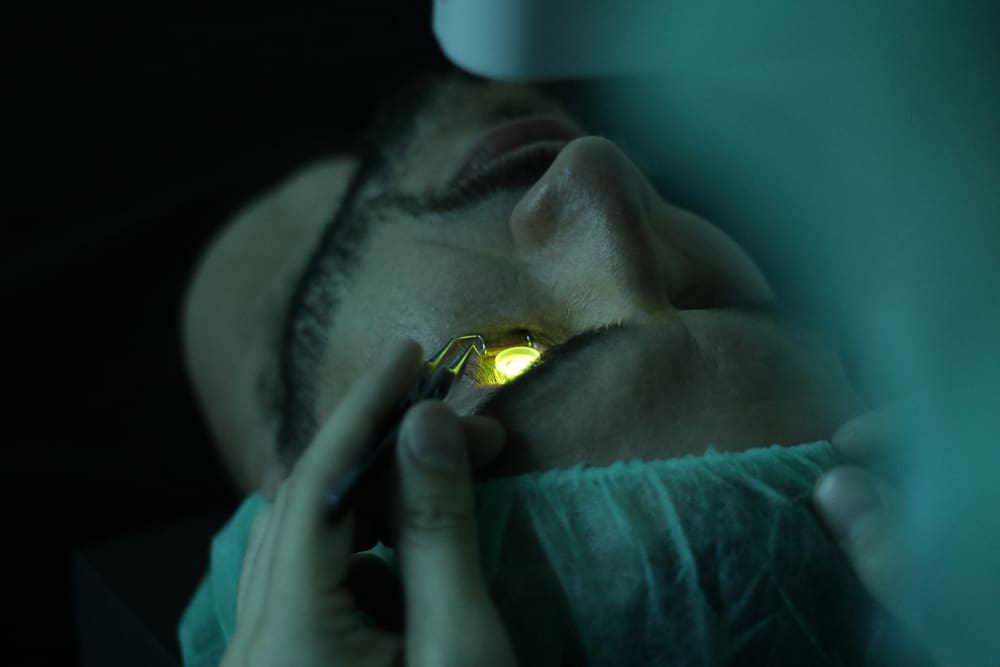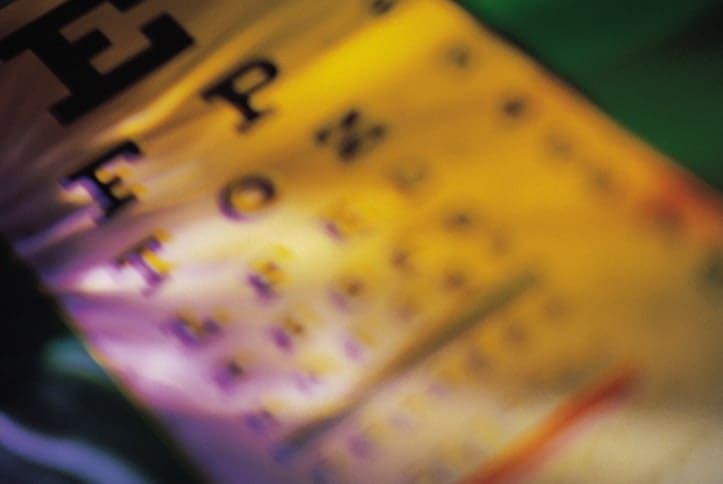So, you just had laser vision correction. First of all, congratulations! Welcome to the world of waking up and actually being able to see the alarm clock. It’s pretty magical, right? But now you’re probably staring at your old, trusty (or not-so-trusty) sunglasses and wondering, “What’s next?” Do they still work? Do you need something different?
We get this question all the time at our clinic in Vienna, Virginia. After investing in something as life-changing as Lasik eye surgery, it feels a bit strange to suddenly be stressed about sunglasses. But trust us, it’s one of the most important parts of your Lasik recovery. Your eyes are essentially superstar athletes who just won the championship; they need a little extra protection and TLC while they’re taking their victory lap.
Let’s have a real chat about post-surgery sunwear. We’ll break down what you need, why you need it, and how to find the perfect pair without losing your mind (or your wallet).
Why Your Old Sunglasses Might Be Letting You Down
Think of your eyes after laser eye surgery as being temporarily a bit… dramatic. They’re more sensitive to light and glare than they were before. This is a normal part of the healing process, but it means your old gas station sunglasses that were fine for a quick drive aren’t going to cut it anymore.
The goal isn’t just to dim the world. It’s to protect your healing corneas from harmful UV rays that can slow down recovery and cause discomfort. It’s like putting a bandage on a scraped knee; you’re creating a safe, protected environment so everything can heal smoothly. If you’re experiencing increased sensitivity or dryness, that’s also totally normal. In fact, managing post-op dryness is a big part of why we offer comprehensive Dry Eye Treatment at Liberty Laser Eye Center for all our patients, because who has time for gritty, uncomfortable eyes?
So, what makes a sunglass truly great for this specific situation?
The Non-Negotiables: Your Post-Surgery Sunglass Checklist
When you’re shopping, you’re not just looking for a fashion accessory. You’re looking for a medical-grade recovery tool. Keep this checklist in mind.
The Ultimate Protection: It’s All About the Lenses
This is where the magic happens. The frames can be cute, but the lenses are doing all the heavy lifting.
- 100% UV Protection is Non-Negotiable: This is the single most important feature. You need lenses that block 100% of both UVA and UVB rays. Don’t settle for 99%, and don’t believe any pair that doesn’t have a clear tag or marking stating “100% UV Protection” or “UV400.” IMO, this is more important than the brand name on the frames.
- Polarization is Your Best Friend: Remember that intense glare bouncing off car windshields or water? That’s what polarization cuts out. It reduces eye strain dramatically and makes everything look crisper and more comfortable. After surgery, your eyes will thank you for this feature. It’s a game-changer for driving.
- Lens Color Matters: You might love those funky rose-tinted lenses, but for recovery, stick with gray, brown, or green. Gray lenses distort color the least, making them ideal for driving. Brown and green lenses enhance contrast, which can be helpful for spotting curbs or changes in terrain. Save the fashion colors for later.
A Quick Guide to Lens Tints
We find a little table helps our patients in the Washington DC area visualize their options, especially when they’re dealing with the bright reflections off all those monuments and buildings!
| Lens Color | Best For | Why It’s Great Post-Op |
|---|---|---|
| Gray | All-around use, driving | Reduces light intensity without altering color perception. The classic choice. |
| Brown/Amber | Overcast days, sports | Enhances contrast and depth perception, great for variable light. |
| Green | Bright, sunny days | Offers high contrast with good color accuracy. Very comfortable for long wear. |
| Yellow/Orange | Low light only | Brightens shadows but is not for sunny days. Avoid these for general use. |
The Perfect Fit: Frames That Feel Like They’re Hugging Your Face
A great lens is useless if light is sneaking in from the top, bottom, or sides.
- Wrap-Around Styles are King: The goal is to limit peripheral light exposure. Sunglasses that wrap around the sides of your face are fantastic for this. They create a protective cocoon for your eyes.
- Comfort is Key: You’re going to be wearing these a lot, especially in the first few weeks. Look for lightweight frames with comfortable nose pads and temple arms that don’t pinch. You have enough to think about without adding “sunglass headache” to the list.
- Size Matters: Larger frames generally offer better coverage. Think of it as buying a little more real estate for your eye protection.
Matching Your Sunglasses to Your Lifestyle and Surgery Type
Believe it or not, the specific eye surgery types you had can influence your needs. For example, someone who had Advanced PRK Surgery might have a slightly different initial sensitivity timeline than someone who had a bladeless procedure. And for our patients exploring options for Presbyopia, a condition we often correct with PresbyLASIK Surgery, the need for crisp, glare-free vision at all distances makes premium lenses even more valuable.
Here’s the good news: the fundamentals of 100% UV protection and polarization remain the same. The best Lasik surgeon for you will always emphasize this, regardless of the procedure. It’s one of the universal facts of a successful recovery.
Are you an avid runner on the W&OD Trail? A wraparound, sporty, and shatter-resistant pair is your go-to. Do you spend a lot of time driving around Washington DC and Northern Virginia? Polarized lenses are an absolute must for battling glare off other cars. Your lifestyle didn’t stop for surgery, and your sunglasses shouldn’t hold you back from getting back to it.
Your Post-Op Sunglass Shopping Strategy
Okay, you’ve got the knowledge. Now, how do you actually buy these things without getting overwhelmed?
- Shop in Person if You Can: Being able to try on frames is crucial for assessing fit and comfort. It’s the best way to see if light is leaking in. A quick search for “sunglasses near me” should bring up some reputable optical shops.
- Don’t Skimp, But You Don’t Need to Break the Bank: The price of sunglasses isn’t always tied to their protective quality. You can find very affordable pairs that offer 100% UV and polarization. The brand name often just pays for the logo. Focus on the features, not the fame.
- Read the Reviews: See what other people are saying. If hundreds of reviews mention the incredible clarity and lack of glare, you’re probably on the right track.
And hey, while we’re on the topic of your eye health, this is a great reminder not to let your Annual Eye Exam slide. Even after laser vision correction, those yearly check-ups are vital for monitoring your overall eye health. We can’t stress this enough at our center.
Answering Your Burning Sunglass Questions
We hear a lot of the same great questions from our patients. Let’s tackle a few head-on.
1. How long do I really need to wear sunglasses after surgery?
Be religious about it for the first few weeks. Any time you’re outdoors, even on a cloudy day (UV rays don’t care about clouds), you should have them on. After that initial intense healing period, think of it as a lifelong healthy habit. Your eyes are still your eyes, and UV protection helps prevent long-term issues like cataracts. So, the short answer? Forever, but with less fanaticism after the first month.
2. Can I wear my prescription sunglasses now?
Nope! And isn’t that the whole point? Your old prescription is no longer correct for your new, improved vision. Wearing them will likely give you a headache and blurry vision. It’s time to retire them or have the lenses replaced with plain, non-prescription ones that meet our new protective standards.
3. Are cheap sunglasses from a drugstore okay?
Yes, but only if they explicitly state they offer 100% UVA/UVB protection. The cost does not dictate safety. A twenty-dollar pair with 100% UV protection is infinitely better than a three-hundred-dollar designer pair without it. Always, always check the tag.
4. What if I have a pre-existing condition like Keratoconus?
This is a critical point. If you have a condition like Keratoconus, which sometimes requires a procedure like Corneal Cross-Linking to stabilize the cornea, your post-operative light sensitivity and protection needs can be even more specific. In these cases, it’s not just a suggestion—it’s a mandatory part of your treatment plan. You should follow the precise instructions from your Lasik doctors to the letter. The team at Liberty Laser Eye Center is specially trained to manage these complex cases and will give you a customized protection plan.
Your Vision is an Investment, Protect It
Choosing the right sunglasses after your procedure is the final, crucial step in your journey. It safeguards the incredible results you’ve achieved. The high success rate of modern vision correction is thanks to both the advanced technology, like Wavefront Analysis and Topography-Guided LASIK Surgery, and to patients like you who follow through with the essential aftercare.
Whether you were treated for Nearsightedness, Farsightedness, Astigmatism, or Presbyopia, the principle is the same: protect your investment. You sought out the best Lasik surgeons you could find to get here. Don’t let a subpar pair of sunglasses be the weak link.
We know this might seem like a lot, but you’ve got this. And you’ve got us. If you’re ever feeling unsure or have more questions about your recovery, don’t hesitate to reach out to us at Liberty Laser Eye Center. We’re your nearest resource in Vienna, Virginia, and we’re always here to help you see your best life, clearly and comfortably. Now go find those perfect sunglasses—your eyes deserve it
Related Articles
People Also Ask
After laser eye surgery, your eyes are extremely sensitive to light and UV radiation. It is crucial to wear high-quality, 100% UV-protection sunglasses whenever you are outdoors, even on cloudy days. Wrap-around styles are highly recommended as they block light and debris from the sides. For the first few weeks, you may also find comfort wearing them indoors if lights feel too bright. The choice between indoor and outdoor protective environments is an important part of the healing process, which we explore in our internal article, Indoor Vs. Outdoor Recovery Environments. Always follow your surgeon's specific post-operative instructions regarding eyewear and protection duration.
Yes, you can generally go shopping after laser eye surgery, but it is important to follow your surgeon's specific post-operative instructions. Most patients are cleared for light activities like shopping within a day or two, provided they avoid strenuous activity and protect their eyes. You must wear the protective sunglasses provided to shield your eyes from bright lights and potential irritants. Be cautious of crowded environments to avoid accidental bumps to the face. Avoid rubbing your eyes at all costs. It's also wise to have someone accompany you initially, as your vision may be slightly blurry or fluctuating. For more detailed guidance on resuming normal activities, including travel, refer to our internal article Post-LASIK Travel Tips: Airport Security To Sightseeing.
Following LASIK, it is crucial to protect your eyes from bright light and UV rays during the initial healing phase. You should wear the protective sunglasses provided by your clinic anytime you are outdoors during daylight for at least the first week. Many surgeons recommend continuing this practice for the first month whenever you are in direct sunlight. This shields your sensitive corneas from ultraviolet radiation, which can impede healing, and reduces discomfort from photophobia (light sensitivity). For long-term eye health, making a habit of wearing quality UV-blocking sunglasses in bright conditions is an excellent practice. For more on creating an optimal healing space, see our internal article Indoor Vs. Outdoor Recovery Environments.
While laser eye surgery aims to correct your vision to reduce or eliminate dependence on glasses or contacts, results vary. The goal is to provide you with the best possible uncorrected vision. Many patients achieve 20/20 vision or better and no longer need glasses for daily activities. However, you may still require reading glasses as you age due to a natural condition called presbyopia, which affects everyone typically after age 40. Some individuals with very high initial prescriptions might need a slight correction for certain tasks. A comprehensive pre-operative evaluation is crucial to determine your likely outcome. For long-term insights, you can review our detailed findings in The 10-Year LASIK Satisfaction Survey Results.
After laser vision correction, protecting your eyes from UV rays is crucial for healing and long-term health. The best sunglass shopping guide prioritizes 100% UVA and UVB protection, which is non-negotiable. Look for wraparound styles or large lenses to shield your eyes from peripheral light and wind, which can cause dryness. Polarized lenses reduce glare and are highly recommended for comfort. In the initial weeks post-procedure, darker tints are beneficial. Choose a reputable optical retailer where you can verify the UV protection rating. Comfort and a secure fit are key, as you'll likely be wearing them frequently. Always consult your eye care professional for personalized recommendations based on your specific recovery.
For men who have undergone laser vision correction, selecting sunglasses requires specific considerations to protect the investment in their new eyesight. The primary goal is safeguarding the cornea from UV radiation, which is crucial during the healing process and for long-term health. Look for sunglasses that offer 100% UVA and UVB protection. Wraparound styles are highly recommended as they provide superior peripheral light blocking and wind protection. Polarized lenses are excellent for reducing glare, especially during activities like driving or water sports. For optimal comfort and durability, consider frames made from lightweight, flexible materials. It is always advisable to consult with your eye care professional for personalized recommendations based on your specific procedure and lifestyle.
Patients can typically wear sunglasses after LASIK once their surgeon gives the approval, which is often immediately. The best choice is a pair offering 100% UV protection, as UV rays can hinder healing and long-term eye health. Wraparound styles provide superior coverage from peripheral light and wind. Polarized lenses are excellent for reducing glare, especially during activities like driving. For the first few weeks post-surgery, when eyes are more light-sensitive, darker tints can be more comfortable. It's advisable to avoid cheap, non-UV-blocking sunglasses, as they can cause pupils to dilate and allow more harmful rays in. Consulting with your eye care professional for personalized recommendations is always the best practice.






